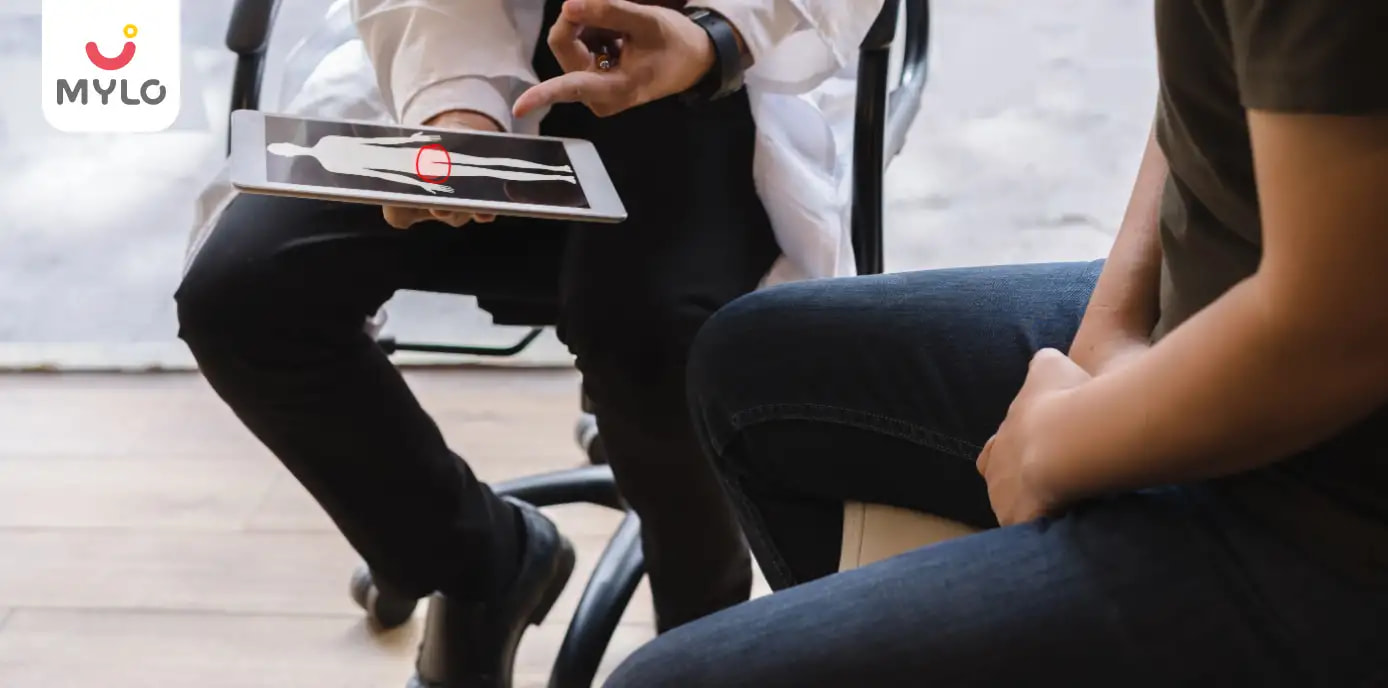- Home

- Male Infertility

- Testicular Pain: Don't Ignore, Know When to Seek Medical Attention
In this Article
Male Infertility
Testicular Pain: Don't Ignore, Know When to Seek Medical Attention
Updated on 28 August 2023
Mohit was experiencing a rather unusual pain- testicular pain- but he felt a sense of unease in discussing it with his family or friends. As the discomfort steadily escalated over the past few days, he turned to the vast expanse of the internet to seek out testicular pain treatment at home. The article gives you comprehensive information about causes of testicular pain, signs, types, when to see a doctor and testicle pain relief methods.
What is testicular pain?
Testicular pain is a condition where a man experiences discomfort or pain in one or both testicles. It can range from mild to severe and may be caused by various factors such as injury, infection, or inflammation. Such pain should be taken seriously and evaluated by a healthcare professional to determine the underlying cause and receive appropriate treatment.
You may also like: Sperm Cramps: Debunking Myths and Shedding Light on the Facts
What are the signs of testicular pain?
The signs of testicular pain may include:
-
Pain or discomfort in one or both testicles
-
Swelling or tenderness in the scrotum
-
Redness or warmth in the scrotal area
-
Pain or discomfort during urination
-
Pain or discomfort during sexual activity
-
Fever or chills (if the pain is due to an infection)
-
Nausea or vomiting (if the pain is severe)
You may also like: Disadvantages of Releasing Sperm Daily: Debunking Common Myths
What are the causes of testicular pain?
Testicular pain can be caused by various factors, including:
1. Testicular torsion
A medical emergency where the spermatic cord twists, cutting off blood flow to the testicle.
2. Epididymitis
Inflammation of the epididymis, a coiled tube behind the testicle, often due to infection.
3. Orchitis
Infection or inflammation of the testicle, commonly caused by a viral or bacterial infection.
4. Inguinal hernia
A condition where a part of the intestine protrudes through the abdominal wall into the inguinal canal.
5. Kidney stones
If a kidney stone passes into the ureter, it can cause referred pain in the testicle.
6. Trauma or injury
Direct trauma to the testicles can lead to pain and swelling.
7. Varicocele
Enlarged veins in the scrotum that can cause discomfort.
8. Hydrocele
Accumulation of fluid around the testicle, leading to swelling and pain.
9. Testicular cancer
In rare cases, testicular pain can be a symptom of testicular cancer.
You may also like: Low Sperm Count Signs You Should Never Ignore
What are the types of testicular pain?
Testicular pain can be categorized into different types based on its underlying causes. The main types of testicular pain include the following:
1. Chronic testicular pain
Chronic testicular pain refers to persistent or recurring discomfort in one or both testicles that lasts for an extended period, typically for three months or more. Unlike acute testicular pain, which is sudden and severe, chronic testicular pain may be less intense but can significantly impact a man's quality of life.
Management options may include pain relief medications, lifestyle modifications, physical therapy, or, in some cases, surgical intervention.
2. Left testicle pain
Left testicle pain refers to discomfort or pain specifically localized in the left testicle. This type of pain can have various underlying causes, and it is essential to identify the exact reason for accurate diagnosis and treatment
3. Pain in right testicle
Pain in the right testicle refers to discomfort or pain specifically localized in the right testicle. It can be caused by various factors. Prompt medical attention is crucial if you experience pain in the right testicle, as some conditions, like testicular torsion, require immediate intervention. A healthcare professional can conduct a thorough examination and possibly order tests or imaging to identify the cause and provide appropriate treatment for relief.
4. Lower stomach and testicle pain
Lower stomach and testicle pain refers to the simultaneous discomfort or pain experienced in both the lower abdomen and the testicles. This type of pain can be caused by various factors, and it is essential to identify the underlying cause for appropriate diagnosis and treatment.
You may also like: Burning Sensation After Sex: What Could It Mean
How to provide testicle pain relief?
Testicular pain treatment at home depends on the underlying cause of the pain. Here are some general measures that may help alleviate testicle pain:
1. Rest and elevation
If the pain is due to an injury or trauma, resting and elevating the affected area can help reduce swelling and discomfort.
2. Ice pack
Applying a cold pack or ice wrapped in a cloth to the affected area for 15-20 minutes may help reduce inflammation and provide pain relief.
3. Supportive underwear
Wearing supportive underwear, such as briefs, may help reduce discomfort by providing extra support to the testicles.
4. Over-the-counter pain relievers
Over-the-counter pain medications, such as acetaminophen or ibuprofen, can help relieve mild to moderate testicle pain.
5. Warm bath
Taking a warm bath may help relax the muscles and reduce tension, providing some relief from testicle pain.
6. Avoiding triggers
If certain activities or movements worsen the pain, try to avoid them until the discomfort subsides.
7. Hydration
Ensuring adequate hydration can help prevent or manage testicle pain associated with conditions like kidney stones or urinary tract infections
You may also like: Painful Ejaculation and Its Impact on Men's Health: From Stigma to Solutions
When to seek a doctor
You should seek medical attention promptly if you experience any of the following concerning symptoms related to testicle pain:
1. Sudden and severe testicle pain
If you experience a sudden and intense pain in the testicles, it could be a sign of testicular torsion, which is a medical emergency requiring immediate attention.
2. Swelling or redness
If you notice significant swelling or redness in the scrotum or testicles, it may indicate an infection or inflammation that needs medical evaluation.
3. Fever and chills
If you have a fever along with testicle pain, it could be a sign of an infection that requires medical treatment.
4. Nausea or vomiting
Testicle pain accompanied by nausea or vomiting may indicate a serious condition that needs medical attention.
5. Pain after injury or trauma
If you experience testicle pain after an injury or trauma, it is essential to get it checked by a doctor to rule out any serious damage.
6. Urinary symptoms
If you have difficulty urinating, blood in urine, or other urinary symptoms along with testicle pain, seek medical help as it could be related to a urinary tract issue.
7. Lump or mass in the testicle
If you notice a lump or abnormal mass in the testicle, it is crucial to get it examined by a doctor to rule out the possibility of testicular cancer.
8. Pain lasting more than a few days
If testicle pain persists for more than a few days, it is essential to seek medical evaluation to identify the underlying cause and receive appropriate treatment.
You may also like: Testicular Ultrasound: What You Need to Know About the Procedure and Its Benefits
FAQs
1. Is testicle pain common?
Testicle pain is relatively common and can occur in males of all ages. It may be caused by various factors, including injuries, infections, inflammation, and other medical conditions. In many cases, testicle pain is mild and temporary, and it resolves on its own or with simple home remedies.
2. Can sperm build up cause testicle pain?
Yes, sperm build-up or congestion in the testicles can sometimes lead to testicle pain. This condition is known as epididymal congestion or spermatocele and can cause discomfort or a dull ache in the testicles.
3. Does testicle pain heal itself?
In many cases, testicle pain may heal itself without specific medical intervention, especially if the pain is due to minor injuries or temporary conditions. Rest, avoiding triggers, and using home remedies like ice packs or over-the-counter pain relievers can often help alleviate mild testicle pain.
You may also like: Orchidopexy: All You Need to Know About Its Procedure, Risks, and Recovery
Closing Thoughts
In conclusion, testicular pain is a common issue that can be caused by various factors, ranging from minor injuries to more serious medical conditions. While some cases of testicle pain may heal on their own with rest and home remedies, it is crucial to seek medical attention if the pain persists, worsens, or is accompanied by concerning symptoms. Early diagnosis and appropriate treatment can help ensure a safe and effective recovery and prevent potential complications.
References
-
Gossman, W., Boniface, M. P., & Mohseni, M. (2020). Acute Scrotum Pain. PubMed; StatPearls Publishing.
-
Leslie, S. W., Sajjad, H., & Siref, L. E. (2020). Chronic Testicular Pain. PubMed; StatPearls Publishing.



Written by
Madhavi Gupta
Dr. Madhavi Gupta is an accomplished Ayurvedic doctor specializing in Medical content writing with an experience of over 10 years.
Read MoreGet baby's diet chart, and growth tips

Related Articles
How Respiratory Syncytial Virus (RSV) Impacts Premature Babies Differently: What Every Parent Needs To Know
Adverbs: A Comprehensive Guide to help small children learn the usage of adverbs
Expand Your Child's Vocabulary with words that start with X: Easy, Positive, and Engaging Words, Animals, Countries, and Fruits
Unlocking Language Proficiency: The Ultimate Guide to Top 100 Sight Words for Kindergarten and Beyond
Related Questions
Hello frnds..still no pain...doctor said head fix nhi hua hai..bt vagina me pain hai aur back pain bhi... anyone having same issues??

Kon kon c chije aisi hai jo pregnancy mei gas acidity jalan karti hain... Koi btayega plz bcz mujhe aksar khane ke baad hi samagh aata hai ki is chij se gas acidity jalan ho gyi hai. Please share your knowledge

I am 13 week pregnancy. Anyone having Storione-xt tablet. It better to have morning or night ???

Hlo to be moms....i hv a query...in my 9.5 wk i feel body joint pain like in ankle, knee, wrist, shoulder, toes....pain intensity is high...i cnt sleep....what should i do pls help....cn i cosult my doc.

Influenza and boostrix injection kisiko laga hai kya 8 month pregnancy me and q lagta hai ye plz reply me

Related Topics
RECENTLY PUBLISHED ARTICLES
our most recent articles
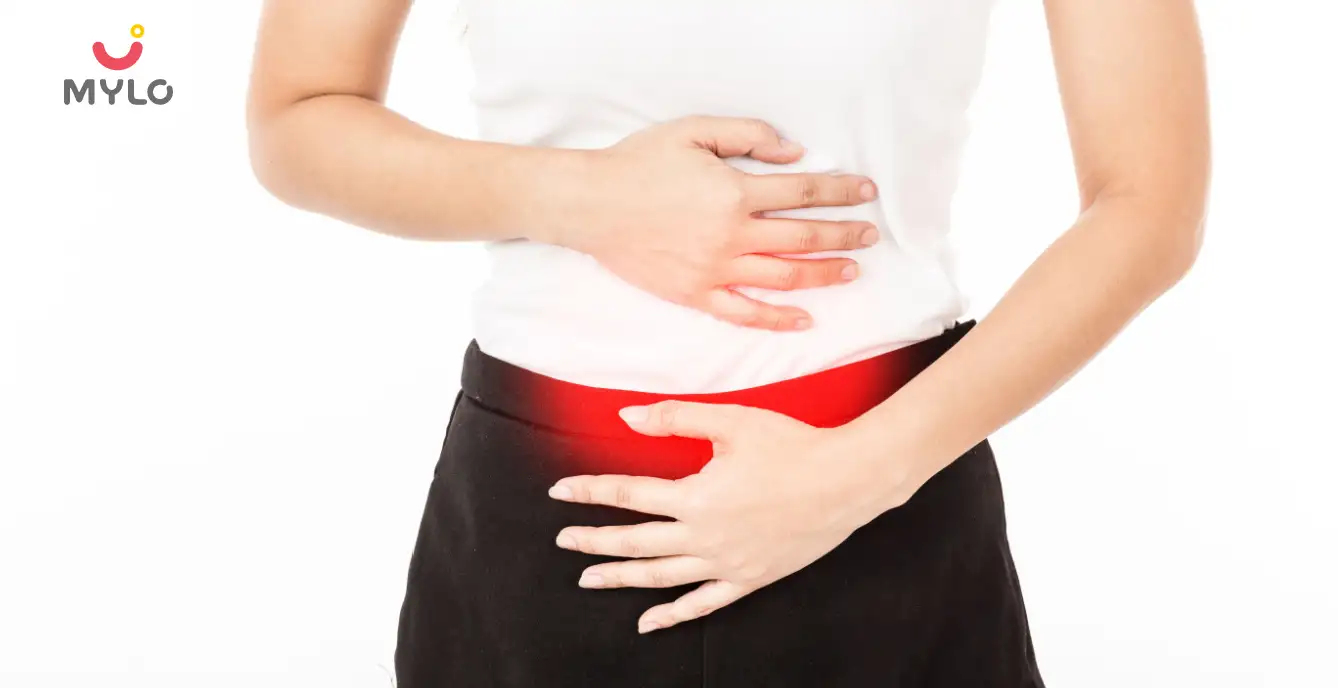
PCOS & PCOD
PCOS with Regular Periods: Understanding the Symptoms and Implications
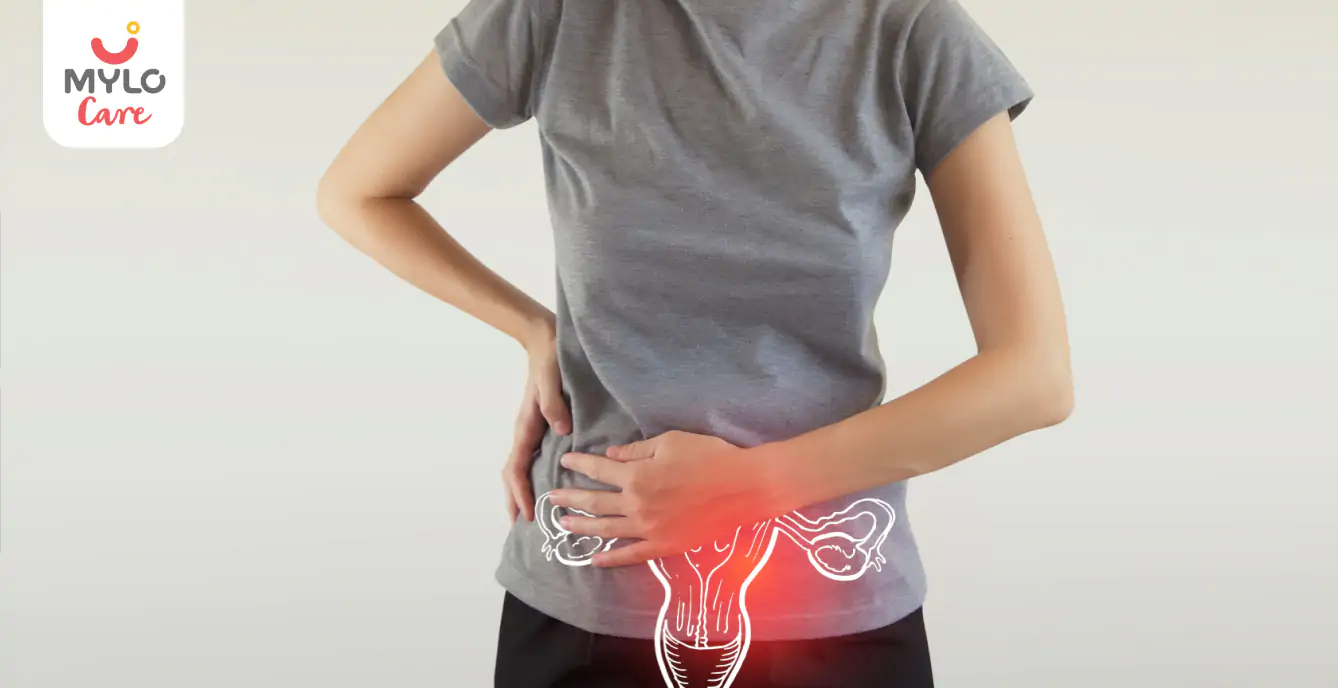
Women Specific Issues
Bulky Uterus: What You Need to Know About this Common Gynecological Issue

babyproducts
Mylo Baby Wipes Review

PCOS & PCOD
PCOS Treatment in Ayurveda: The Ultimate Guide to Natural Treatment Options
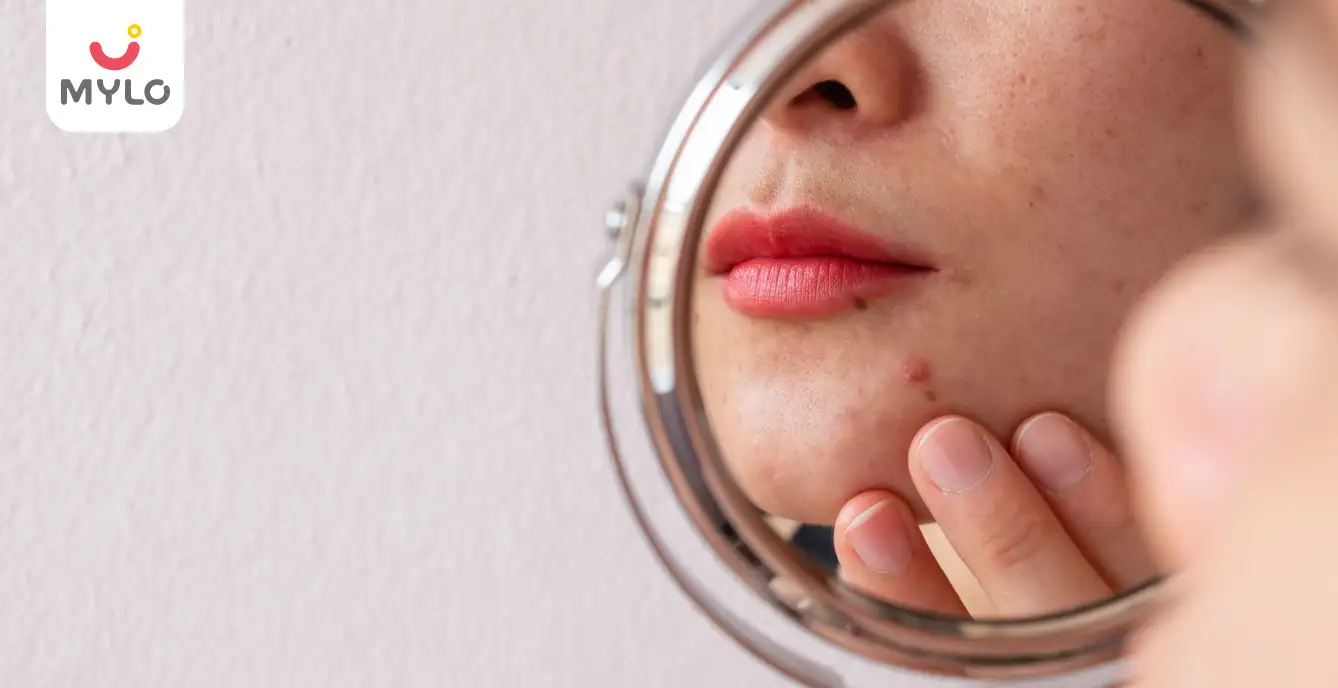
PCOS & PCOD
PCOS Acne: The Ultimate Guide to Causes, Treatment and Management
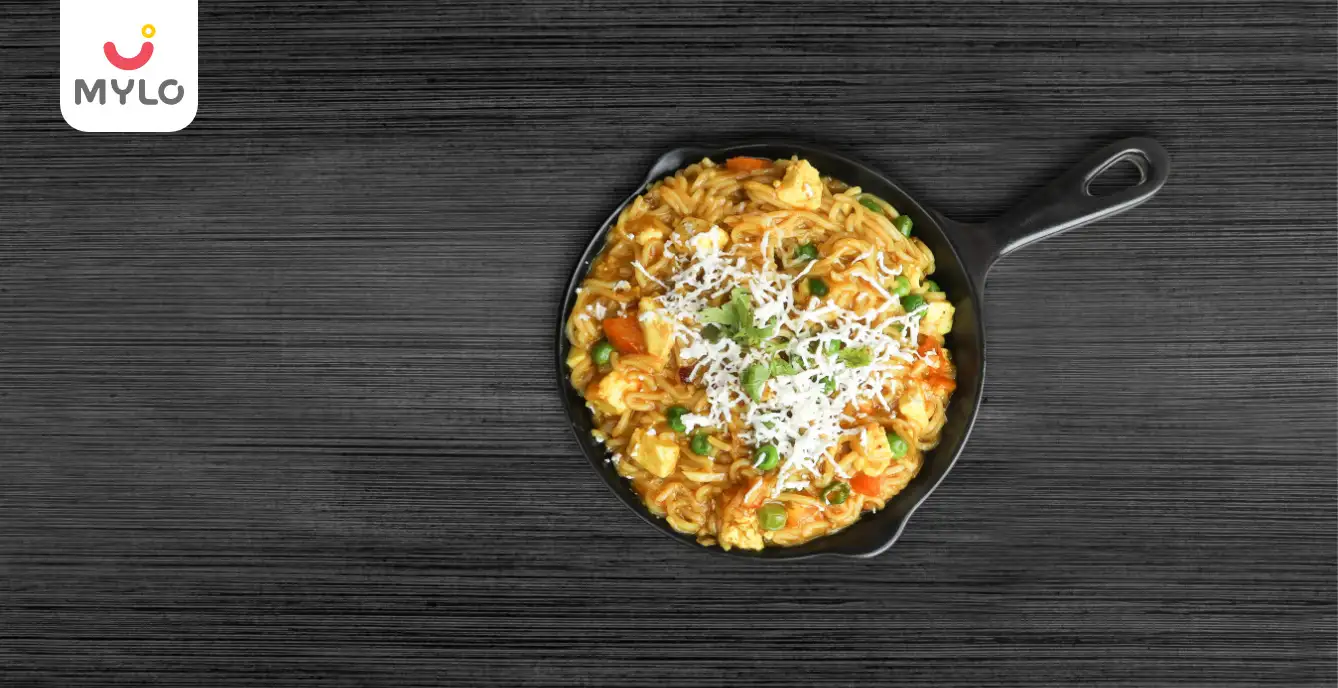
Diet & Nutrition
Maggi in Pregnancy: Is It Safe to Enjoy Your Favorite Instant Noodles?
- Oats During Pregnancy: A Winning Combination for Both Mom and Baby
- Types of IVF, Their Benefits and Side Effects Everything You Need to Know..
- How to Sterilize Baby Bottles: The Ultimate Step-by-Step Tutorial
- What to eat when trying to conceive
- White Discharge After IUI: Is It Normal & When to See a Doctor
- Diet & Exercises Your Wife Can Follow During Pregnancy
- Can a diet plan help deal with infertility in women and boost the chances of conception?
- How to Sterilize Breast Pump: A Comprehensive Guide for New Moms
- Bronchiectasis Meaning in Hindi | ब्रोन्किइक्टेसिस क्या होता है?
- The Ultimate Guide to Teej 2023: Celebrations, Traditions, and Dates
- Should I Pee After Sex if Trying to Get Pregnant? And 5 Other FAQs
- Menorrhagia: A Guide to Understanding Heavy Period Bleeding (Part 1)
- Indigestion and Heartburn During Pregnancy
- Understanding Follicular Study: A Comprehensive Guide to Female Fertility


AWARDS AND RECOGNITION
Mylo wins Forbes D2C Disruptor award
Mylo wins The Economic Times Promising Brands 2022
AS SEEN IN
















At Mylo, we help young parents raise happy and healthy families with our innovative new-age solutions:
- Mylo Care: Effective and science-backed personal care and wellness solutions for a joyful you.
- Mylo Baby: Science-backed, gentle and effective personal care & hygiene range for your little one.
- Mylo Community: Trusted and empathetic community of 10mn+ parents and experts.
Product Categories
baby carrier | baby soap | baby wipes | stretch marks cream | baby cream | baby shampoo | baby massage oil | baby hair oil | stretch marks oil | baby body wash | baby powder | baby lotion | diaper rash cream | newborn diapers | teether | baby kajal | baby diapers | cloth diapers |



